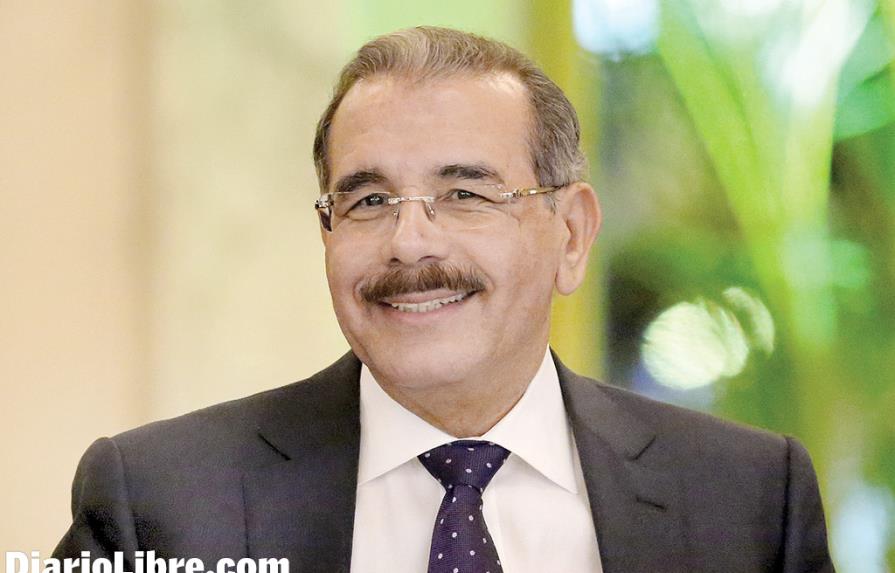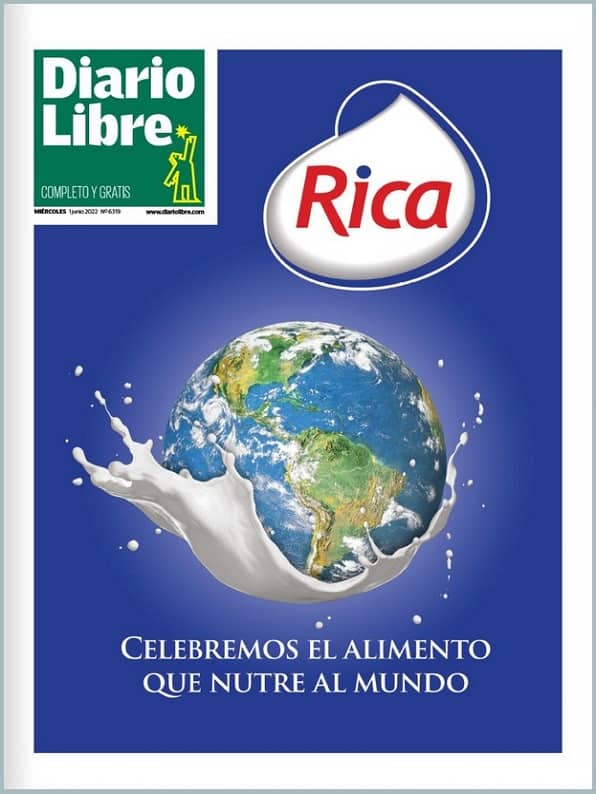Without Medina, a more fluid electoral situation

SANTO DOMINGO. President Medina continues to have massive support if he chooses to launch a bid for reelection. The majority of the voters supports a constitutional reform, would vote to reelect him, and overwhelmingly would choose him over any other candidate on any other ticket.
But, if the Constitution remains unaltered and Danilo Medina cannot present himself for reelection, the electoral situation becomes less certain.
In two different scenarios, none of the candidates has sufficient support to win in the first round of voting. With Leonel Fernandez as the PLD candidate and Hipolito Mejia as the PRM candidate, Fernandez has 32% support, Mejia 24% and Guillermo Moreno of the Alianza Pais 15%, with Miguel Vargas Maldonado of the Dominican Revolutionary Party and Federico Antun Batlle of the Social Christian Reformist Party with 4% each.
If the candidate for the PRM were Luis Abinader, the scenario in the first round does not look very different. Fernandez will obtain 33% of the votes, Abinader 24%, Moreno 12%, Vargas Maldonado seven and Antun 4% of the votes.
In both scenarios, Guillermo Moreno obtains double-digit support. He obtains support from the disaffected voters both from the PLD as well as the PRD/PRM. In a first scenario which includes Fernandez and Mejia, Leonel only assures the support of around half of the voters that identify themselves as followers of the PLD and Moreno obtains 10% of those in spite of the old president appearing on the ticket, and Moreno wins 21% of those that voted for Mejia and 2012. In such a case, Hipolito only obtains half of those that supported him in 2012. Right away, it is clear that in an election without Medina, a second-round will be necessary.
A second-round between Fernandez and Mejia is practically a tie. Forty two percent would support Mejia and 41% Fernandez, although among those most inclined to vote in 2016, Fernandez gains one point on Mejia, 43% to 42% within the margin of error of the survey.
Luis Abinader does a little better against former President Fernandez. In a second round of voting, 45% of the voters would support Abinader, against 42% for Fernandez, and among the most probable voters, both go up a point, 46% to 43% although no candidate reaches 50% and they continue to be within the margin of error of the survey.
An important key point that explains the slight margin of Abinader, is the support of the Moreno votes. He obtains 65% of the votes from Moreno in a second round of voting, while Mejia only obtains 49% of those that favored Moreno in a face-off with Leonel. In such a tight race, this constitutes a great difference for the PRM candidate.
As the former Greenburg - Diario Libre survey showed, the gender gap is pronounced. The head to head between Fernandez and Mejia shows an advantage of nine points for Leonel among the women (46% to 37%), and an advantage of 11 points for Mejia among the men (47% to 36%). Abinader does even better against Fernandez among the men with an advantage of 17 points (53% to 36%).
The PRM begins to consolidate itself
The small advantage of Luis Abinader over Leonel Fernandez is just one sign that the Modern Revolutionary Party is beginning to consolidated itself. The survey suggests that the majority of the PRD voters, although they are still not affiliated to the PRM, have begun to follow Mejia and Abinader in the new party.
As evidence of this, Miguel Vargas Maldonado remains far behind in all the scenarios.
Even among the 19% of Dominicans that still identify themselves as belonging to the PRD, only 11% would vote for Vargas Maldonado, compared to 58% for Mejia (Vargas Maldonado does a little better against Abinader, but even in this case he only gets 18% of the PRD votes against 40% that would go to Abinader).
As a party, the tendency towards the PRM has increased slightly, from 16% favorable in October to 19% now. This growth comes from the PRD itself: 31% of the PRD party members are now inclined towards the PRM, and 42% of the voters for Mejia in 2012 (up 8% since October).
Within the PRM and among those voters that say they will vote in the party primaries, Hipolito is slightly stronger among the women, while Abinader is stronger among the men. The PRM voters who are over 35 favor Abinader and the younger than 35 favor Mejia.
This demographic profile helps Abinader in the primaries due to the fact that the potential voters in the primaries of the PRM are by a slight percentage more adult and male.
Jessica Reis, the Vice President of Greenburg, Quinlan, Rosner, who led the survey, notes that "in spite of the high popularity of Danilo, the PLD has a real possibility of losing the presidency in 2016. A number of factors contribute to this: the erosion of the popularity of Leonel, especially among his party's voters; the hits that he is receiving in the media, therefore obliging any challenger in the PLD primaries to maintain the favor of Danilo; and the PRM and Abinader in particular, consolidating the PRD deserters."
"Rarely do you see circumstances in which the fact that a president who has more than 90% approval does not mean that his party can easily navigate towards victory. Nevertheless, at 14 months from the elections this appears to be the case."
But, if the Constitution remains unaltered and Danilo Medina cannot present himself for reelection, the electoral situation becomes less certain.
In two different scenarios, none of the candidates has sufficient support to win in the first round of voting. With Leonel Fernandez as the PLD candidate and Hipolito Mejia as the PRM candidate, Fernandez has 32% support, Mejia 24% and Guillermo Moreno of the Alianza Pais 15%, with Miguel Vargas Maldonado of the Dominican Revolutionary Party and Federico Antun Batlle of the Social Christian Reformist Party with 4% each.
If the candidate for the PRM were Luis Abinader, the scenario in the first round does not look very different. Fernandez will obtain 33% of the votes, Abinader 24%, Moreno 12%, Vargas Maldonado seven and Antun 4% of the votes.
In both scenarios, Guillermo Moreno obtains double-digit support. He obtains support from the disaffected voters both from the PLD as well as the PRD/PRM. In a first scenario which includes Fernandez and Mejia, Leonel only assures the support of around half of the voters that identify themselves as followers of the PLD and Moreno obtains 10% of those in spite of the old president appearing on the ticket, and Moreno wins 21% of those that voted for Mejia and 2012. In such a case, Hipolito only obtains half of those that supported him in 2012. Right away, it is clear that in an election without Medina, a second-round will be necessary.
A second-round between Fernandez and Mejia is practically a tie. Forty two percent would support Mejia and 41% Fernandez, although among those most inclined to vote in 2016, Fernandez gains one point on Mejia, 43% to 42% within the margin of error of the survey.
Luis Abinader does a little better against former President Fernandez. In a second round of voting, 45% of the voters would support Abinader, against 42% for Fernandez, and among the most probable voters, both go up a point, 46% to 43% although no candidate reaches 50% and they continue to be within the margin of error of the survey.
An important key point that explains the slight margin of Abinader, is the support of the Moreno votes. He obtains 65% of the votes from Moreno in a second round of voting, while Mejia only obtains 49% of those that favored Moreno in a face-off with Leonel. In such a tight race, this constitutes a great difference for the PRM candidate.
As the former Greenburg - Diario Libre survey showed, the gender gap is pronounced. The head to head between Fernandez and Mejia shows an advantage of nine points for Leonel among the women (46% to 37%), and an advantage of 11 points for Mejia among the men (47% to 36%). Abinader does even better against Fernandez among the men with an advantage of 17 points (53% to 36%).
The PRM begins to consolidate itself
The small advantage of Luis Abinader over Leonel Fernandez is just one sign that the Modern Revolutionary Party is beginning to consolidated itself. The survey suggests that the majority of the PRD voters, although they are still not affiliated to the PRM, have begun to follow Mejia and Abinader in the new party.
As evidence of this, Miguel Vargas Maldonado remains far behind in all the scenarios.
Even among the 19% of Dominicans that still identify themselves as belonging to the PRD, only 11% would vote for Vargas Maldonado, compared to 58% for Mejia (Vargas Maldonado does a little better against Abinader, but even in this case he only gets 18% of the PRD votes against 40% that would go to Abinader).
As a party, the tendency towards the PRM has increased slightly, from 16% favorable in October to 19% now. This growth comes from the PRD itself: 31% of the PRD party members are now inclined towards the PRM, and 42% of the voters for Mejia in 2012 (up 8% since October).
Within the PRM and among those voters that say they will vote in the party primaries, Hipolito is slightly stronger among the women, while Abinader is stronger among the men. The PRM voters who are over 35 favor Abinader and the younger than 35 favor Mejia.
This demographic profile helps Abinader in the primaries due to the fact that the potential voters in the primaries of the PRM are by a slight percentage more adult and male.
Jessica Reis, the Vice President of Greenburg, Quinlan, Rosner, who led the survey, notes that "in spite of the high popularity of Danilo, the PLD has a real possibility of losing the presidency in 2016. A number of factors contribute to this: the erosion of the popularity of Leonel, especially among his party's voters; the hits that he is receiving in the media, therefore obliging any challenger in the PLD primaries to maintain the favor of Danilo; and the PRM and Abinader in particular, consolidating the PRD deserters."
"Rarely do you see circumstances in which the fact that a president who has more than 90% approval does not mean that his party can easily navigate towards victory. Nevertheless, at 14 months from the elections this appears to be the case."


 Diario Libre
Diario Libre
 Diario Libre
Diario Libre